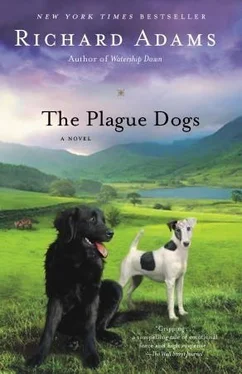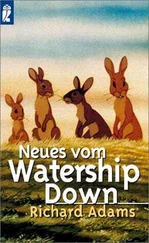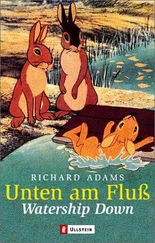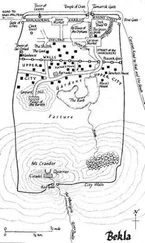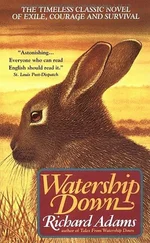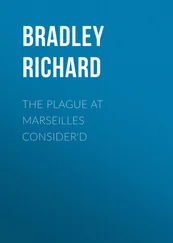Richard Adams - The Plague Dogs
Здесь есть возможность читать онлайн «Richard Adams - The Plague Dogs» весь текст электронной книги совершенно бесплатно (целиком полную версию без сокращений). В некоторых случаях можно слушать аудио, скачать через торрент в формате fb2 и присутствует краткое содержание. Город: New York, Год выпуска: 2007, ISBN: 2007, Издательство: Ballantine Books, Жанр: Природа и животные, Фэнтези, на английском языке. Описание произведения, (предисловие) а так же отзывы посетителей доступны на портале библиотеки ЛибКат.
- Название:The Plague Dogs
- Автор:
- Издательство:Ballantine Books
- Жанр:
- Год:2007
- Город:New York
- ISBN:978-0-345-49402-3
- Рейтинг книги:3 / 5. Голосов: 1
-
Избранное:Добавить в избранное
- Отзывы:
-
Ваша оценка:
- 60
- 1
- 2
- 3
- 4
- 5
The Plague Dogs: краткое содержание, описание и аннотация
Предлагаем к чтению аннотацию, описание, краткое содержание или предисловие (зависит от того, что написал сам автор книги «The Plague Dogs»). Если вы не нашли необходимую информацию о книге — напишите в комментариях, мы постараемся отыскать её.
, Richard Adams creates a lyrical and engrossing tale, a remarkable journey into the hearts and minds of two canine heroes, Snitter and Rowf, fugitives from the horrors of an animal research center who escape into the isolation—and terror—of the wilderness.
The Plague Dogs — читать онлайн бесплатно полную книгу (весь текст) целиком
Ниже представлен текст книги, разбитый по страницам. Система сохранения места последней прочитанной страницы, позволяет с удобством читать онлайн бесплатно книгу «The Plague Dogs», без необходимости каждый раз заново искать на чём Вы остановились. Поставьте закладку, и сможете в любой момент перейти на страницу, на которой закончили чтение.
Интервал:
Закладка:
“These creatures in here—whatever they are—the whitecoats must burn them. It’s the same smell, you see, only burnt. Yes, of course,” said Snitter. “Of course that’s it. They burnt my head, you know, and the tobacco man keeps burning that thing he puts in his mouth. Obviously they burn these creatures in there.”
“Why?”
“Don’t be silly.” Snitter went slowly back to the open door. “It’s still warm in there. Dead things—but not cold. Hot bones, hot bones. I’ll throw my head in.” He put his paws up once more, peering into the mouth of the square, metal cavern. Suddenly he gave a whine of excitement.
“Fresh air,” cried Snitter. “Sheep, rain! Smell underneath the ashes! I tell you—”
The brick-encased, iron chute, sloping downwards through the wall of the building, led directly into a small furnace, not unlike that of a greenhouse, sited just outside. This was used for burning not only rubbish, such as old surgical dressings, fouled straw and bedding from the hutches, but also the dead bodies of guinea-pigs and any other creatures small enough to be conveniently disposed of in this way. There had been a brisk fire that afternoon, which had included the truncated remains of some twenty guinea-pigs unable to be of further help to the station, as well as a couple of kittens and a mongoose. Tom, the lad who helped Tyson about the place, had been told to go and draw the furnace at about five o’clock but, knowing that Tyson was in a hurry to get away and was unlikely to come and see what sort of a job he had made of it, had merely raked quickly through the ashes and fragmentary remains of straw, bones and hair, and decided to leave the job of clearing out until Monday morning. Tyson had not specially told him to conclude by closing the doors both of the furnace and of the chute in Block 12, and he was certainly not the sort of lad to allow such a refinement to occur to his mind spontaneously—there being, as a matter of fact, little room to spare there, what with the heavy demands made upon it by the fortunes of Manchester United, the products of Messrs. Yamaha and the charms of Miss Nana Mouskouri. After he had gone, the fire had revived for a time in the strong through-draught, filling the guinea-pig block with a light smoke and the smell of burnt guinea-pig coming up the chute; but had then died out, the furnace gradually cooling as darkness fell and the wind sifted its way through the tinkling, clicking ashes.
“Fresh air,” said Snitter again. “Yellow smell—prickles—bees-only faint—and somewhere there’s wet rhododendrons, too. Rhododendrons, Rowf!”
“What?”
“Gorse, the yellow. We could fall there! We could! We could fall there!”
Snitter gaped, showing teeth brown about the gums, the teeth of a dog recovered from distemper. He began trying to pull himself up and into the square opening of the chute, thrusting in his head and front paws and hanging a moment on the lip before falling back to the concrete floor. Rowf watched him.
“Is it hot?”
“No hotter than your dam’s belly in the basket. Remember? But I can’t get at the teat.” “Get in there?”
“The rhododendrons, don’t you see? Outside. Smell comes in, so dog can go out.”
Rowf considered. “Smells come through cracks. So do mice. Dogs don’t. Suppose there’s nothing but a crack? You’ll stick in there and die. Never get back.”
“You damned flea-bitten street-corner bitch-jumper, why do you think I’m going on like this? Once you get your head in there, you can feel the wind, wide as your arse, and smell the rain.” Snitter jumped up and again fell back, his wet muzzle grey with powdered ash. “Burn, little bones, burn! Like my head.” He wiped at his nose with a fore-paw.
Rowf, the bigger dog, stood on his hind legs, rested his front paws on the lip of the chute and looked in. For some little while he remained thus, peering and listening. Then, without a word, he hoisted his body up and into the opening. His hind paws left the floor and for some moments kicked and scrabbled in the air, trying in vain to get a purchase on the iron lip. As he jerked himself forward, inch by inch, pulling and scraping as best he could with front paws pressed against the smooth iron floor of the chute, his penis caught on the sill of the door and was forced painfully downwards. He rolled on one side and as he did so succeeded in getting the claws of one hind paw as far as the projecting hinges. Using this purchase, he thrust himself forward and slowly disappeared from Snitter’s view, his hind legs, with tail between, stretching out backwards and dragging behind him in the tunnel.
Snitter, full of frustration, remained running backwards and forwards in front of the open door. Several times more he jumped up at the opening and fell back, until at length, giving up, he lay down, panting, on the floor.
“Rowf?”
There was no answer from the tunnel.
Snitter got up and backed slowly away from the door, as though trying to get a better view inside.
“Rowf?”
There was still no answer, and beyond the lip he could see nothing.
“Hoop-la sugar lump!” barked Snitter suddenly. Running forward, he took a flying leap at the opening, like a circus dog jumping through a hoop. He felt his hind legs strike hard against the metal lip and gave a single, quick yap of pain; then, realizing that his body was more than half into the hole, he rolled on his side as Rowf had done and, being smaller, drew his rump and hind paws in without difficulty. For a few moments he lay gasping as the pain in his legs subsided, then collected himself and smelt ahead.
Rowf’s body was blocking the square tunnel in front of him. No draught was coming up it and no smell except the metal water dog-smell of Rowf. Snitter began to feel afraid. In this tunnel he could not turn round, evidently Rowf could not hear him and worst of all, Rowf’s body seemed not to be moving.
He crept forward until his head was lying upon Rowf’s trailing hind legs. Only now did he perceive that Rowf was in fact moving, but agonizingly slowly—more slowly, thought Snitter, than a slug on a wet gravel path. He could smell Rowf’s urine smeared along the metal floor. It was full of fear. Snitter began to tremble and whimper where he lay in the close, ash-powdery, cast-iron passage.
Cramped in that funnelled hole, he found himself, as he tried to stand, forced into a curious posture, half-crouching, his rump pressed tightly against the roof of the chute. He could not maintain so unnatural a stance and after a few moments fell forward, so that his head butted sharply against Rowf’s rump. At the impact he felt the body give and move the least fraction—no more, perhaps, than the length of a tooth or claw. In frenzy, he pushed again and again with his head at the black, shaggy rump, which at each impact slid almost imperceptibly forward.
He did not know whether it was possible for Rowf to force his way out of the far end of the chute. All he knew was that Rowf was still alive, for at each push he could feel his pulse and the spasmodic working of his muscles. For how long he continued in his desperate pushing and thrusting he had no idea. The air in the tunnel grew foetid and his own breath lay condensed and humid on the iron walls. He wondered whether daylight might already have come. Slowly the length of tunnel behind him grew longer, but still there was no sign that Rowf was likely to get clear of it. At last, just as Snitter felt himself exhausted and unable to do more, Rowf’s rump slid suddenly forward as smoothly as a turd from a healthy anus, and dropped out of sight. Snitter, drawing in a wonderful breath of cool air, found himself looking at a square of fragrant darkness speckled with rain—an opening in some sort of wall beyond the chute and framed in its mouth. A moment later he himself, dropping over the edge, fell two feet into a drift of powdery ash sprinkled with tiny, sharp bones on an iron grid. They had reached the furnace chamber.
Читать дальшеИнтервал:
Закладка:
Похожие книги на «The Plague Dogs»
Представляем Вашему вниманию похожие книги на «The Plague Dogs» списком для выбора. Мы отобрали схожую по названию и смыслу литературу в надежде предоставить читателям больше вариантов отыскать новые, интересные, ещё непрочитанные произведения.
Обсуждение, отзывы о книге «The Plague Dogs» и просто собственные мнения читателей. Оставьте ваши комментарии, напишите, что Вы думаете о произведении, его смысле или главных героях. Укажите что конкретно понравилось, а что нет, и почему Вы так считаете.
